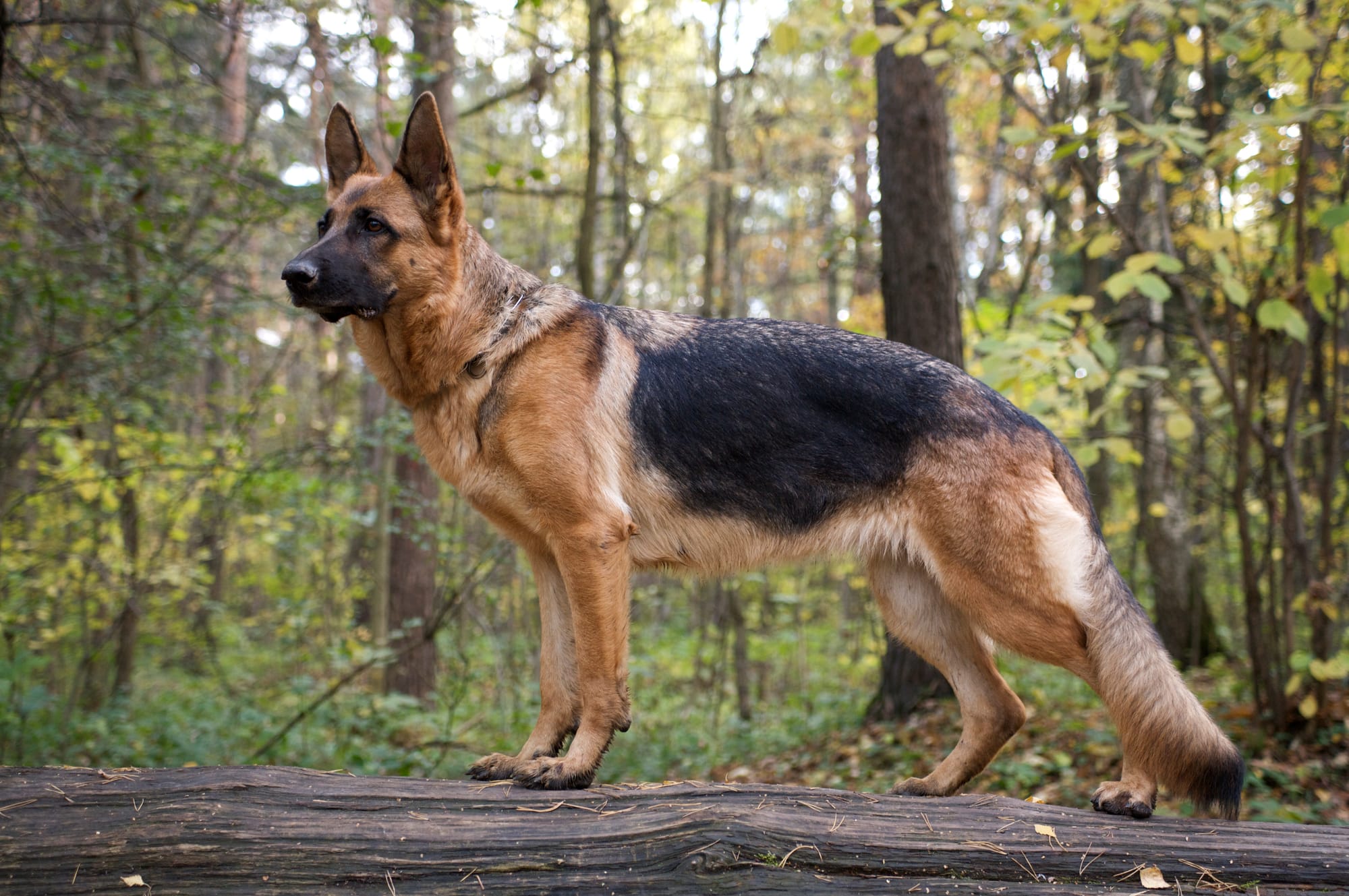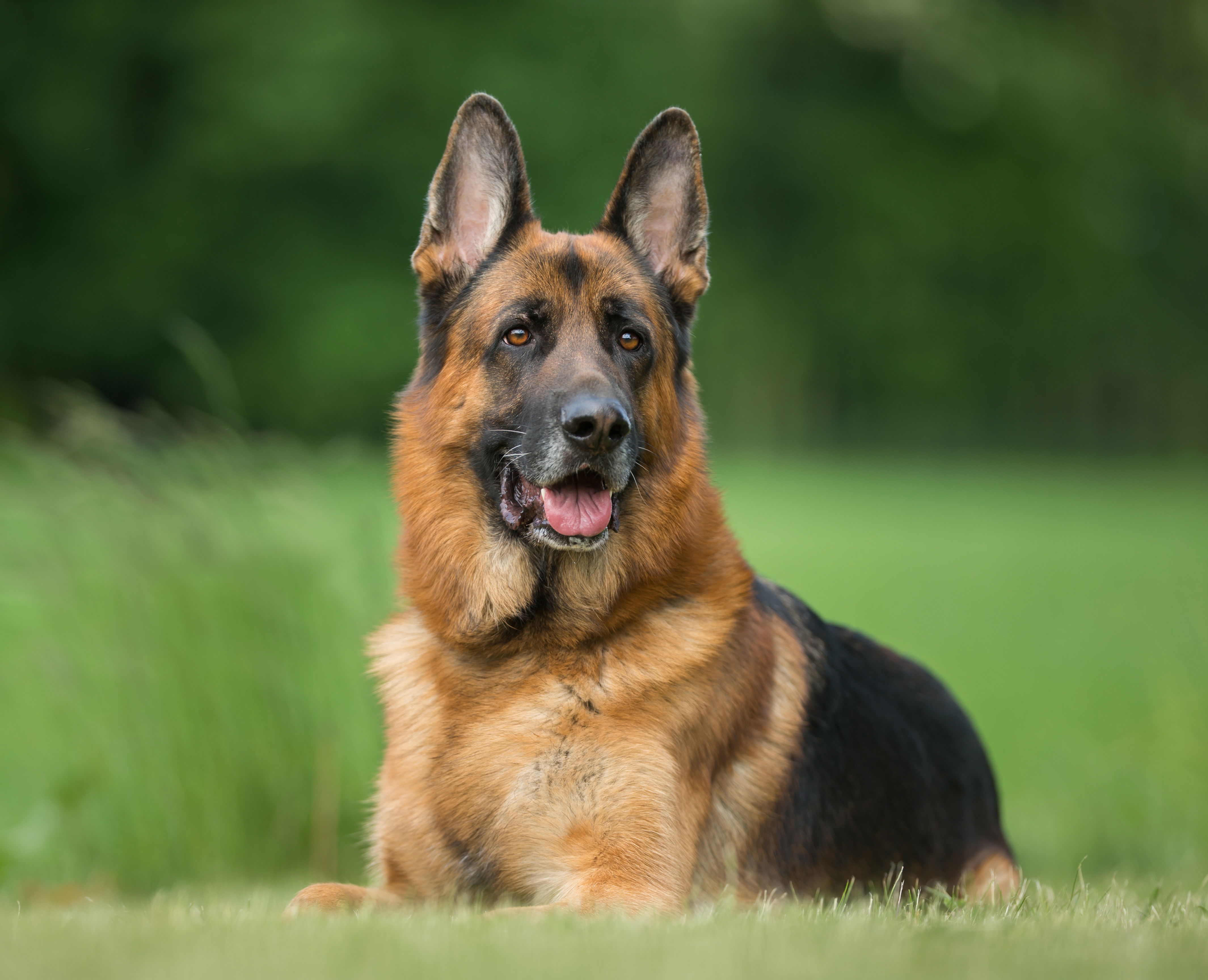Welcome to the world of German Shepherds


This guide will help you understand the unique needs and traits of your German Shepherd puppy and set you up for success as a proud GSD owner
1. Breed Overview
- Temperament: German Shepherds are known for their intelligence, loyalty, and versatility. They are highly trainable and thrive in environments where they have a job or task to focus on. - Working Drive: German Shepherds, especially working line GSDs, possess a strong drive to work and complete tasks. This makes them exceptional in roles like police work, search and rescue, military service, and herding. - Physical Traits: German Shepherds are medium to large dogs with a strong, muscular build. The breed's coat varies from short to long, and regular grooming is essential to keep shedding under control.
2. Puppy Development Stages
- 0-8 Weeks: The first few weeks are crucial for neurological development. Puppies rely heavily on their mother and littermates for warmth, comfort, and early socialization. - 8-16 Weeks: This is a critical time for socialization. Puppies need to be exposed to a variety of new people, environments, sounds, and other dogs during this period to help them grow into confident adults. - 4-6 Months: Teething begins, and puppies may chew on everything in sight, including furniture and toys. Providing chew toys and dental care is essential. - 6-12 Months: This is the teenage phase of development, and your puppy will experience hormonal changes. Expect testing of limits, stubbornness, and more energy than ever before. - 12+ Months: At 12 months, your German Shepherd will begin transitioning into adulthood. They may still have bursts of energy, but this is when their temperament and behavior begin to stabilize.
3. Training Essentials
- Start with the Basics: Begin training as soon as you bring your puppy home. Basic commands like “sit,” “stay,” “come,” and “down” are essential for building a well-behaved dog. - Balanced Training Approach: A balanced approach uses both rewards and corrections to teach boundaries. While GSDs are very trainable, they can appear stubborn if not given clear expectations. - Crate Training: Crate training is a must for GSDs. It helps with housebreaking, provides a safe space for the dog, and prevents destructive behavior when you're away. - Consistency is Key: German Shepherds thrive on routines and clear expectations. Ensure that all family members are on the same page about rules and training methods.
4. Exercise and Mental Stimulation
- Daily Physical Activity: German Shepherds require a lot of physical activity to stay healthy and happy. For puppies, 30 minutes to an hour of exercise a day is a good start. - Mental Challenges: German Shepherds are highly intelligent and need mental stimulation to avoid boredom. Incorporate puzzle toys, obedience drills, and interactive games into their daily routine. - Avoid Over-Exercising Puppies: While it’s important for GSDs to stay active, avoid over-exercising a puppy, especially during the first year. Too much running or jumping can strain their developing joints and bones.
5. Health & Nutrition
- Feeding Guidelines: Feed your German Shepherd a high-quality, breed-appropriate diet that meets their nutritional needs for growth, energy, and overall health. - Supplements: Joint health is particularly important for German Shepherds due to their predisposition for hip and elbow dysplasia. Supplements like glucosamine and chondroitin can be helpful, especially if recommended by your vet.
6. Socialization Tips
- Early Exposure: Early socialization is key to raising a well-adjusted dog. Expose your puppy to various environments, people, and animals to prevent shyness or aggression as they grow. - Handling New Situations: Take your German Shepherd to different places, like the park, pet stores, or even car rides to build confidence in new experiences. - Ongoing Practice: Socialization doesn’t stop after the puppy stage. Continue to provide opportunities for your German Shepherd to interact with new people, dogs, and environments throughout their life.
Closing Thoughts
Your German Shepherd is a lifelong companion with incredible potential. With the right training, exercise, and care, they will thrive and bring lots of joy to your family. If you have any questions or need support, feel free to reach out—I’m here to help!